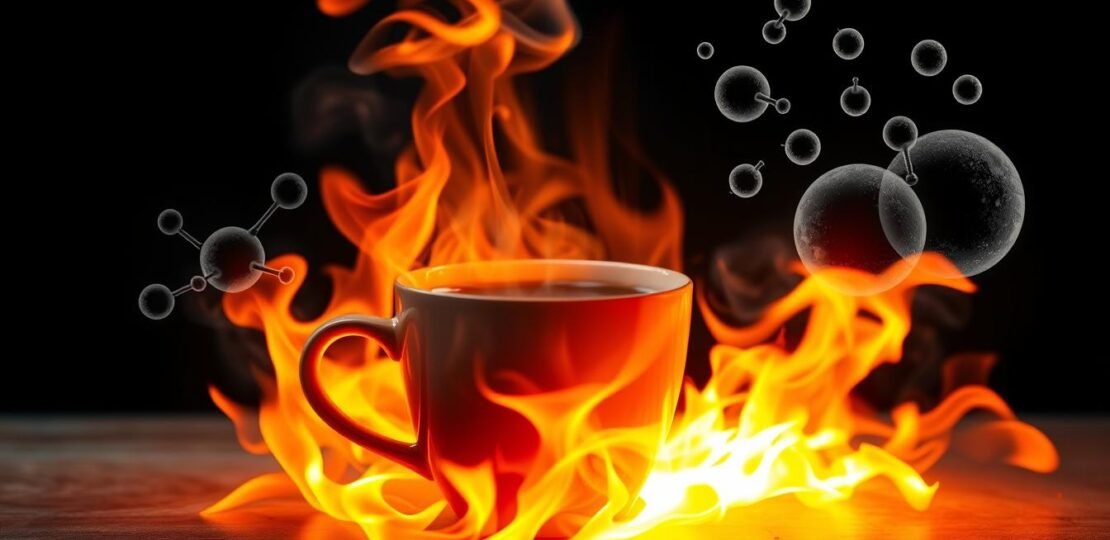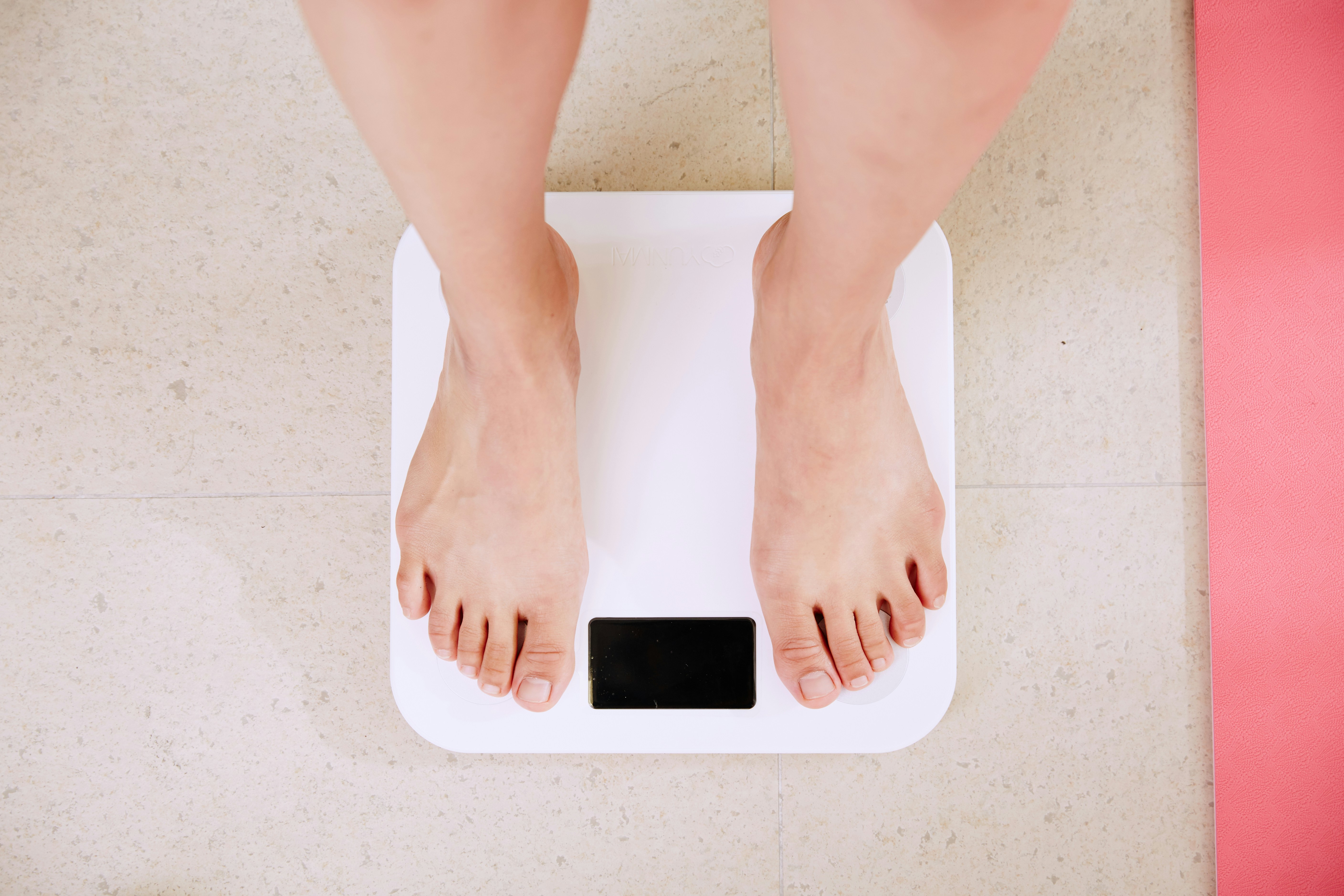Coffee and Calorie Burn: The Science Behind Fat Loss
December 13, 2024 | by Ben Turner

I love my morning coffee. I wondered if it could help me lose fat. It turns out, coffee and its caffeine can help burn calories. We’ll explore how coffee can aid in weight loss.
Coffee is loved by many around the world. Its main ingredient, caffeine, boosts exercise performance by 11-12%. It also increases your resting metabolic rate by 3-11%.
But, caffeine’s effect on metabolism might be stronger in the young. As we get older, its impact may lessen. Also, some people might get used to caffeine, making it less effective over time.
Key Takeaways
- Caffeine can improve exercise performance by 11-12% on average.
- Caffeine can increase resting metabolic rate by 3-11%, with larger doses having a greater effect.
- The effects of caffeine on metabolism may be more pronounced in younger individuals and decrease with age.
- People can develop a tolerance to caffeine over time, reducing its long-term effectiveness in boosting metabolism.
- Caffeine may have an appetite-reducing effect, potentially aiding in eating less, particularly in men.
Understanding Coffee’s Active Compounds and Metabolism
As a coffee lover, I’m always curious about the science behind my favorite drink. Coffee has special ingredients that can help our metabolism and burn fat. Let’s look at the main ingredients and how they affect our bodies.
Key Stimulants in Coffee
The main stimulant in coffee is caffeine. It’s well-studied for its energy and focus benefits. Coffee also has theobromine and theophylline. These work together to give us a big energy boost.
How Caffeine Affects Your Body
Caffeine blocks a sleepiness chemical called adenosine. This lets other chemicals like dopamine and norepinephrine increase. They make us more alert and focused. Caffeine also tells fat cells to break down fat and use it for energy.
The Role of Chlorogenic Acid
Chlorogenic acid is another important coffee compound. It helps slow down carb absorption. This can keep blood sugar stable and help with weight management. It also has antioxidant properties and helps regulate metabolism.
The mix of caffeine, theobromine, theophylline, and chlorogenic acid makes coffee special. It’s a great pre-workout drink, caffeine booster, and energy supplement. Knowing how these compounds work can help us use coffee to support our fitness and weight goals.
“Moderate coffee consumption can be a valuable addition to a healthy lifestyle, providing a natural source of caffeine, antioxidants, and other beneficial compounds.”
Coffee and Calorie Burn: Breaking Down the Process
Coffee drinks help us burn fat by mixing coffee’s active parts with our body’s metabolism. This mix boosts our calorie burn and helps us lose weight.
Metabolic Rate Enhancement
Drinking coffee without milk and sugar saves about 60 calories per cup. That’s 180 calories a day for three cups. Caffeine in coffee also boosts our metabolism by 3-11%.
Fat Oxidation Mechanisms
Caffeine helps move fat from fat tissue. It breaks down fats before they’re used and removed from the body. Coffee’s chlorogenic acid also helps break down fats faster, speeding up weight loss.
Energy Expenditure Factors
Coffee also helps us eat less. Chlorogenic acids in coffee reduce hunger. A black coffee has only 4 calories and can satisfy sweet cravings without extra calories.
Research shows coffee drinks can help you get fit and healthy. Coffee boosts your metabolism, moves fat, and reduces hunger. Enjoying your favorite coffee can help you reach your fitness goals.
| Study Finding | Outcome |
|---|---|
| Caffeine (8 mg/kg) increased metabolic rate in normal-weight subjects | Metabolic rate significantly increased during the 3 hours after caffeine ingestion, and plasma free fatty acid levels rose, leading to significant increases in fat oxidation. |
| Coffee (4 mg/kg caffeine) increased metabolic rate in both control and obese subjects | Metabolic rate increased significantly in both groups, but significant increases in fat oxidation were observed only in the control group. |
| Coffee consumed with a 3080 kJ meal increased the thermic effect of the meal and fat oxidation | The thermic effect of the meal was significantly greater after coffee than after decaffeinated coffee, and fat oxidation was also significantly greater after consuming regular coffee. |
Coffee’s active compounds greatly affect our metabolism and fat burning. It’s a key part of a healthy, active lifestyle.

“Coffee is the largest antioxidant source, providing around 64% of total antioxidant intake.”
The Science Behind Fat Mobilization
Understanding fat mobilization is key for weight loss. Caffeine, found in workout fuel drinks, exercise performance boosters, and energizing pre-gym beverages, helps a lot.
Caffeine makes your body release fatty acids into the blood. But, just releasing fatty acids isn’t enough for losing fat. You must burn more calories than you eat.
Caffeine can also make your metabolism faster. This helps you burn more calories. But, its effects are stronger in people who are leaner.
“Caffeine enhances the mobilization of fatty acids during fat loss during aerobic exercise.” – Research study
Studies also show caffeine boosts fat burning during exercise. It helps you last longer and do more during workouts. This means you burn more fat and calories.
But, remember, caffeine isn’t a magic solution. You need regular exercise, a healthy diet, and a good lifestyle for lasting weight loss.
In short, caffeine is very important for losing weight and getting fit. Knowing how it works can help you use workout fuel drinks, exercise performance boosters, and energizing pre-gym beverages better. This way, you can burn more fat.
Research-Backed Weight Management Benefits
Many studies have looked into coffee’s role in weight management. They found that caffeine and polyphenols in coffee can help. A big study showed that more caffeine led to less weight, BMI, and body fat.
Clinical Studies and Evidence
Harvard researchers found that four cups of coffee a day can cut body fat by 4% in some people. But, people might get used to caffeine’s effects. This could make it less helpful for losing weight over time.
Optimal Dosage for Fat Loss
The best amount of coffee for weight loss is about 200-400 mg of caffeine daily. This is like drinking 2-4 cups of regular coffee. More than this might not help and could cause problems.
Long-term Effects on Body Composition
Coffee compounds like mannooligosaccharides (MOS) can change body fat. Drinking MOS drinks can lead to less body volume and fat. This is compared to drinking nothing at all.

“Coffee and its active compounds have shown promising potential in supporting healthy weight management through various mechanisms, including metabolic rate enhancement, fat oxidation, and energy expenditure factors.”
Conclusion
Coffee has special compounds like caffeine and chlorogenic acid. These can help with weight management. They boost metabolism and burn fat.
Studies show that drinking coffee regularly can help you lose a little weight. It can also make your body fat percentage lower. This is good for your health.
But, how coffee affects weight loss can differ from person to person. It might not work as well over time. Also, when and how much coffee you drink matters.
Drinking coffee in the morning might help more than drinking it later. This is because it can mess up your sleep if you drink it too close to bedtime.
To get the most out of coffee for weight loss, eat well and exercise often. Drink black coffee to avoid extra calories. This way, coffee can help you reach your weight loss goals.
FAQ
What are the main stimulants in coffee that affect metabolism?
Coffee has many stimulants like caffeine, theobromine, and theophylline. Caffeine is the key one. It blocks adenosine and boosts neurotransmitters, making you feel awake.
How does caffeine boost fat burning and metabolism?
Caffeine wakes up the nervous system. It tells fat cells to break down fat. It also raises epinephrine levels, helping release fatty acids.
Caffeine can also up your resting metabolic rate by 3-11%. This is mainly by burning more fat.
What is the role of chlorogenic acid in coffee’s effects on metabolism?
Chlorogenic acid in coffee may slow down carb absorption. This could help with metabolism and fat loss.
How do the metabolic effects of caffeine differ between lean and obese individuals?
Caffeine works differently for lean and obese people. It burns more fat in lean folks, up to 29%. But only about 10% in obese ones.
The effects also lessen with age.
What are the research-backed weight management benefits of coffee consumption?
Studies show caffeine might help with weight loss. It can reduce weight, BMI, and body fat slightly. But, the benefits may wear off over time.
While coffee can help with weight, it’s best with a healthy diet and exercise.
RELATED POSTS
View all


